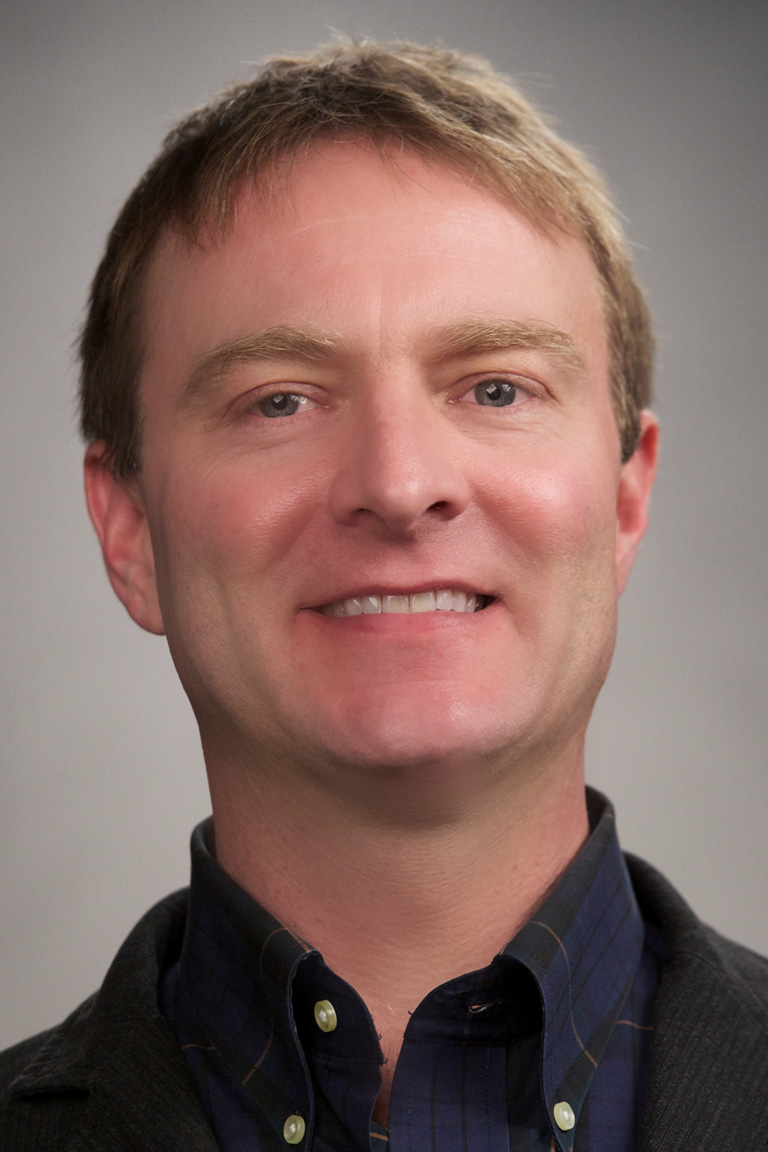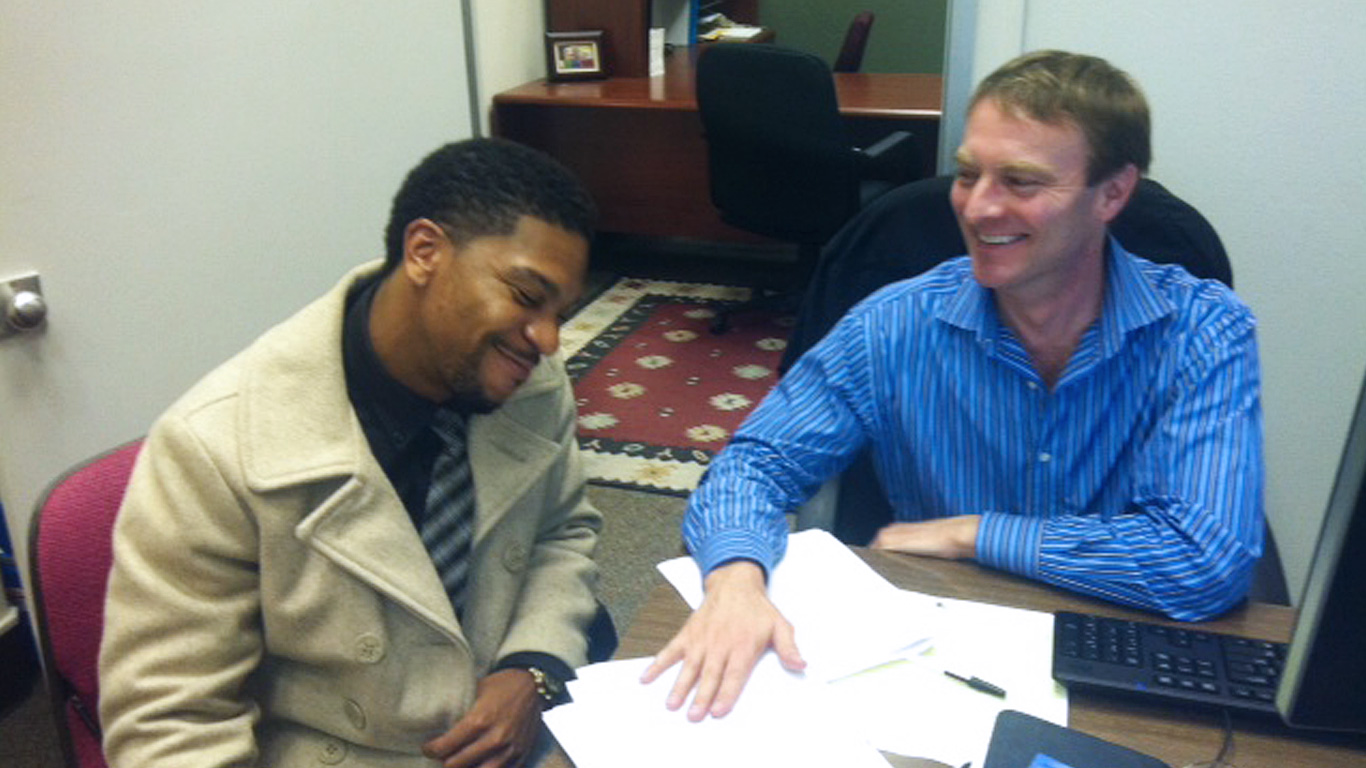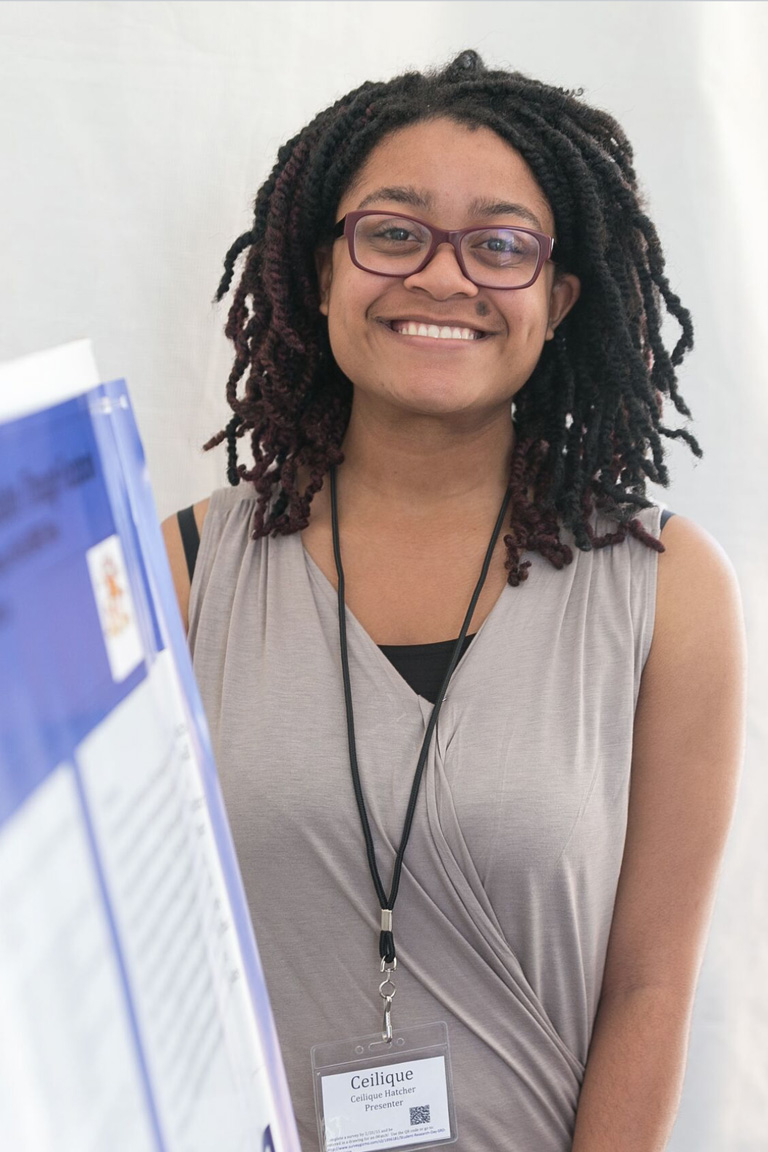 Professor of sociology Matt G. Mutchler’s research over the past 20 years into HIV prevention and treatment issues, especially within the African American community, has garnered him more than 15 external research awards and respect as an expert in the field. In addition to serving as a faculty member at California State University, Dominguez Hills, he is currently a visiting professor with the Center for AIDS Prevention and Study at University of California, San Francisco, and director of community-based research with AIDS Project Los Angeles.
Professor of sociology Matt G. Mutchler’s research over the past 20 years into HIV prevention and treatment issues, especially within the African American community, has garnered him more than 15 external research awards and respect as an expert in the field. In addition to serving as a faculty member at California State University, Dominguez Hills, he is currently a visiting professor with the Center for AIDS Prevention and Study at University of California, San Francisco, and director of community-based research with AIDS Project Los Angeles.
Mutchler’s more recent work addresses sexual communication among African-American gay and bisexual males and their close friends, and other sexual health issues related to gay men. He also investigates HIV treatment adherence programs.
Mutchler brings his expertise in community-based research to the CSUDH’s Urban Community Research Center (UCRC), where he serves as director. The multi-disciplinary, sociology-based applied research center focuses on the needs, problems and solutions that arise in urban areas. The center also offers CSUDH students hand-on research experience as they collaborate with CSUDH faculty, and a number of governmental, community-based, and university/research institutions, such as AIDS Project Los Angeles (APLA), Charles R. Drew University, Spectrum, REACH LA, and the RAND Corporation.
Mutchler recently shared insights about his studies and findings, the challenges and rewards of conducting his research within the African American community, and his latest work.

Q: Can you describe your research focus?
A: We’re focused on interviewing young black gay men and their close friends to understand how they talk about sexual health topics, and how that affects their safer-sex behaviors in regards to HIV prevention. Quite a bit of that work is conducted with APLA and their prevention division, but also with REACH LA, which focuses almost exclusively on young black gay men.
Q: What were your overall findings, and how is that research being used?
A: In this research, we found that there are still many misconceptions about PrEP that need to be addressed. We also found that the sexual communication between young African American gay men and their close friends may be supportive of PrEP, but also may be unsupportive if the communication is shame-based or stigmatizing (calling PrEP a drug for sluts, for example.) We shared there the results with our community advisory board, and discussed their recommendations. We also shared the findings with community agencies so they can use them in their programs, and with the broader community in two articles in peer reviewed publication. That project led to a new proposal with REACH LA and APLA to seek funding for a new study on PrEP.
According to the PrEP REP project, PrEP means Pre-Exposure Prophylaxis, and it’s the use of anti-HIV medication that keeps HIV negative people from becoming infected. The medication interferes with HIV’s ability to copy itself in users’ bodies after they’ve been exposed, and prevents it from establishing an infection.
Q: What will your PrEP study focus on?
A: The PrEP study will develop and evaluate an HIV prevention intervention focused on increasing knowledge, awareness, and interest in PrEP among young African American gay men and their close friends who are eligible for PrEP. The novel piece of this intervention is the focus on working with the friendship dyads and improving PrEP supportive communication between the friends, thus supporting safe sex norms and behaviors. PrEP is a protocol that involves taking the medication, getting tested, doing labs, getting counseling, and still using condoms because PrEP only helps prevent HIV, not other diseases. PrEP’s not perfect by any means, because taking meds can have side effects, or just be difficult to do for some. But with PrEP and other treatments, we are certainly much better off than it was 20 years ago when a lot more people were still dying from HIV.

Q: What have been some of the challenges you have faced conducting your research in African American communities?
A: There are important health disparities in HIV care such as access to treatments and health care. Here in the U.S., some studies show lower rates of HIV adherence to taking HIV medications among African Americans, which can be culturally related, or stem from distrust of medicine and research tracing back to the unethical research conducted by the Tuskegee Institute in the 1930s. There is also a disparity between black and white gay men, for example, in terms of access to care and use of medications, and adherence to medications, including PrEP.
Q: What about the stigma of being gay? Is that more prevalent in African American communities than in others?
A: There is a stigma about being gay and black, and having HIV, which is often fed by religious institutions. But it’s really important to address stigma, because often people don’t feel safe coming out with their sexual identity, or with their health status. As a result, it becomes really hard for them to get the care they need. But there has been evolution there, and a lot of work has been done in black communities. There is also a lot of resiliency in the black community as well.
Q: Who do young black men typically turn to for support?
A: Community and friendship is really important in black culture. I have found that in the literature and in my own research that a lot of young gay black men have a very close friend who is their primary source of support, and some of our research has looked at these close friendships. It’s hard for young gay folks in general to get support. Their parents might not support them, or know how to support them. A lot of times they look to their peers for support. That’s very essential, for all young folks, especially young gay black men.
Q: What do your students get out of working with you and your partners on this research?
A: The students love this work. I teach hands-on research methods, there are workshops, and this work often fulfills their fieldwork requirements. It’s also good for them to be involved in studies funded by the National Institute of Health (NIH) to get a sense of what externally-funded research is all about, and to do lab work, which for us is done in the community. They also get to know our faculty, build good resumes, and see if research is a fit for them. The students relate well to the work because most of the research is with young people who are close to their age, and a lot of them have friends in the local communities. Sexual health is also a topic that all college students are thinking about.
Q: What will your next project focus on?
A: In another major study we will be doing research on the adherence to HIV treatment among African Americans living with HIV/AIDS. It will involve all the folks we have worked with over the past eight years–APLA, Charles R. Drew University, Spectrum, and other groups throughout the county. We have already evaluated a treatment adherence program at APLA, and then adapted it for use specifically targeting African American’s health disparities, which I mentioned before. It showed a lot of promise, and significant results in improving adherence to medications. Those findings resulted in a five-year grant proposal to NIH to do a fully controlled intervention trial to see the impact on not just adherence, but also the viral load. It’s critical work. It’s part of an overall effort to get everyone’s HIV viral load down to undetectable–the best outcome. We are also working on a proposal to develop and evaluate a PrEP intervention called “PrEP-Talk” working with young African American gay men and their close friends to increase knowledge and awareness about PrEP and interest in PrEP uptake.